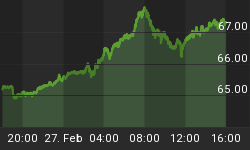When it comes to government economic data, it is easy to get terribly confused. But in recent years, it has also become easy to be more and more suspicious of the numbers themselves.
On the confusion front, almost every month now we go through the employment numbers dichotomy of "household survey" versus "payroll survey." The difference between the two series has widened over the years, and the monthly differences are often very substantial. Although the two surveys are constructed using different methodology, they do purport to measure employment changes in the same labor force in the same country!
As far as suspicion is concerned, I know absolutely no one who really believes their own cost of living is up the mere 3% over the last year that the Consumer Price Index is suggesting.. And the CPI represents just one of several areas over which people manifest increasing suspicion about the accuracy and the intellectural honesty, if not the outright honesty, of government data.
Enter friend and client, Walter J "John" Williams.
John has a long, distinguished record of following and critiquing the changes occurring over the years in the government's reporting of the economic numbers that can and do influence our lives in a major way. As one example, look at how they whip around the financial markets at given moments in time. And every four years, this being one of those years, these data can have a major bearing on who our President will be.
John has written some intriguing material for me to post on the Gillespie Research website. I envision presenting his work in at least a three-installment series, with this first installment dealing specifically with employment data. However, the introduction section serves this function for the entire series. Readers will find it highly enlightening in its own right.
John Williams joins a growing list of guest contributors who have provided some terrific material in the short time the website has been in existence. When you have a moment, go to the website's "Guest Contributions" section on the home page (lower right-hand column). Peruse some of the other great work that is available there.
Now, however, access, read and enjoy: "A Primer on Government Economic Reporting -- Things You've Probably Suspected But Perhaps Were Afraid to Ask!".















